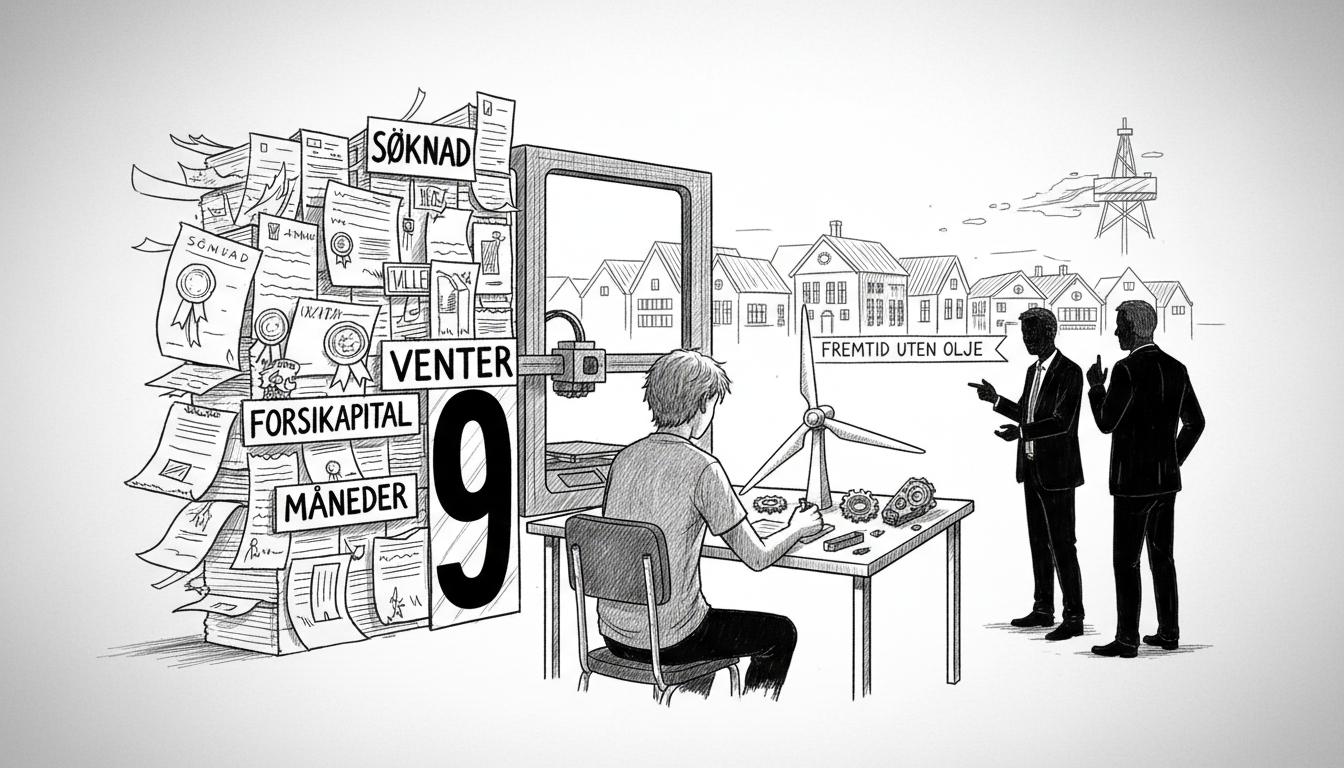In a bedroom at Vinterbro, a 3D printer hums almost constantly. Shelves overflow with figures, spare parts, and small inventions—all created by 15-year-old Brynjar Reynisson. When something breaks at home or at a neighbor's house, he simply prints a replacement part. He fixes most things himself. Now he wants to start his own business, but describes the process as slow and demoralizing.
In June, Brynjar applied to establish a sole proprietorship. Customers stand ready to place orders, but he cannot send invoices. Because he is a minor, his application must go through the County Governor. Wait times there can reach nine months. I submitted everything months ago and have followed up twice without getting any response, Brynjar says. Sending messages to the County Governor via Altinn feels like sending something into a black hole, his father Reynir adds.
His father understands the system aims to protect minors but argues it practically hinders young creators. When the arrangement only applies until he turns 18, it makes little sense to spend up to a year on processing. Norway is choking entrepreneurial talent, he states.
The County Governor in Oslo and Akershus confirms processing times can be lengthy. We have many legal protection tasks and must prioritize strictly, says department director Eldbjørg Sande in an email. She acknowledges the wait can feel long for young people wanting to start businesses.
Since 2020, over 600 people under 18 have registered sole proprietorships according to official registries. Experts warn Norway risks losing young innovators to a cumbersome system—precisely the minds the country needs most for its future. This isn't just about one boy at Vinterbro, but about Norway's ability to keep up in a world where new technology is everything, says SINTEF's strategy director Vincent Fleischer.
He believes Norway produces too few entrepreneurs—both young people like Brynjar and experienced technologists. If we slow down young tech talents with paperwork, we slow down the future, he states.
The president of Tekna, Elisabet Haugsbø, shares this concern. For Norway to succeed in transitioning from oil and gas to knowledge and technology, we must nurture young people who dare to create. It starts in school, she says.
Business organization Abelia points to the same issue. The Norwegian economy needs more legs to stand on, but entrepreneurial will is declining, says Abelia's director Øystein Eriksen Søreide. He notes Norway ranks low in entrepreneurial activity compared to other countries, with bureaucracy, tax rules, and lack of risk capital hindering both young and established entrepreneurs.
The Progress Party reacts strongly. It's a shame Brynjar's entrepreneurial dream gets put on hold by unnecessary bureaucracy. This is just the tip of the iceberg, says the party's tax policy spokesperson Martin Jonsterhaug. He reminds that the Labor government four years ago promised to cut 11 billion kroner in bureaucracy costs. That promise remains largely unfulfilled. Small and medium businesses spend over 20 billion kroner annually on paperwork. Meanwhile, entrepreneurs move abroad for better conditions, he states.
The Progress Party proposes allowing youth to start sole proprietorships from age 16 if parents or others guarantee the business. The government says it wants to make business creation easier—including for young people. Last November, they presented their first entrepreneurship report with 53 measures to cut paperwork and strengthen entrepreneurial culture.
I welcome the impatience. We share the ambition to make it easier for everyone to start businesses, says State Secretary Vegard Grøslie Wennesland at the Ministry of Trade and Industry. This year we launched a digital solution letting you establish a sole proprietorship in seconds. And we continue working to cut bureaucracy and provide better access to capital, he says.
Brynjar tries to maintain motivation, but his patience is being tested. He has already declined projects that could have generated thousands of kroner in income. I want to solve real problems. I'm running out of ideas at home, Brynjar says.
His father Reynir smiles wryly: Today he received a letter from Nordea about pension. That went quickly!
This case highlights Norway's broader challenge in balancing youth protection with innovation encouragement. As the country transitions from oil dependence, bureaucratic hurdles may inadvertently push away the very talent needed for economic diversification. The nine-month wait for a minor's business application seems disproportionate when the approval only lasts until adulthood. Norway's digital public services excel in many areas, but this gap in youth entrepreneurship support reveals systemic inefficiencies that could hamper the country's future competitiveness.

